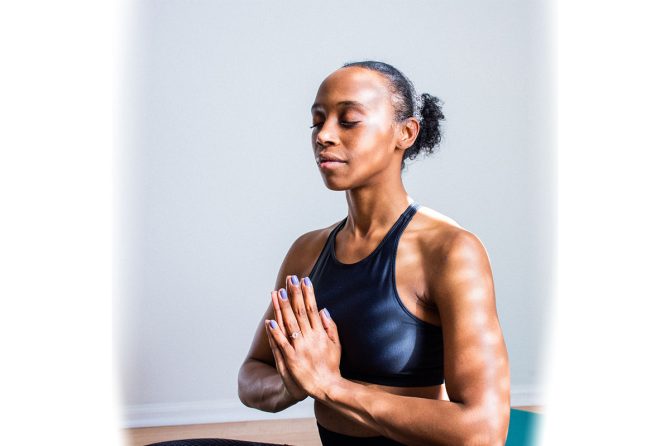
Finding Balance: The Interplay Between Physical and Mental Well-being.
# Outline
1. Introduction
– The Significance of Physical and Mental Well-being
– The Impact of a Balanced Lifestyle
2. Understanding Physical Well-being
– Nutrition and Exercise
– The Role of Sleep
– Stress Management Techniques
3. Exploring Mental Well-being
– Mindfulness and Meditation
– Emotional Intelligence
– Building Resilience
4. The Interplay Between Physical and Mental Health
– The Mind-Body Connection
– Holistic Approaches to Well-being
5. Challenges in Achieving Balance
– Modern Lifestyles
– Cultural and Societal Factors
6. Strategies for Balancing Physical and Mental Well-being
– Goal Setting for a Balanced Life
– Incorporating Healthy Habits
– Seeking Professional Support
7. New Year Approaching: A Time for Reflection
– Importance of New Year Resolutions
– Setting Realistic Health Goals
8. Tips for Balancing Well-being in the New Year
– Establishing Healthy Routines
– Embracing Mindful Practices
– Encouraging Physical Activities
9. The Impact of Balanced Well-being on Daily Life
– Increased Productivity
– Enhanced Emotional Well-being
– Improved Quality of Life
10. Conclusion
Finding Balance: The Interplay Between Physical and Mental Well-being
Introduction
In the hustle and bustle of daily life, finding a harmonious balance between physical and mental well-being is the key to leading a fulfilled and purposeful life. As we stand on the cusp of a new year, it’s an opportune moment to reflect on the interplay between our physical health and mental wellness. This article delves into the intricate relationship between the two, offering insights, strategies, and tips to help you embark on a journey towards holistic well-being.
Understanding Physical Well-being
Maintaining good physical health is the cornerstone of a balanced life. Proper nutrition, regular exercise, and sufficient sleep form the pillars of physical well-being. A well-balanced diet provides the essential nutrients our body needs, while regular exercise keeps our muscles and organs in optimal condition. Quality sleep, often overlooked, plays a vital role in physical recovery and overall vitality.
Exploring Mental Well-being
Equally significant is our mental well-being, which encompasses emotional and psychological health. Mindfulness practices, such as meditation, contribute to a calm and centered mind. Developing emotional intelligence allows us to navigate life’s challenges with resilience and self-awareness. Building mental strength involves cultivating positive habits that foster a robust and adaptable mindset.
The Interplay Between Physical and Mental Health
The mind-body connection is a fascinating aspect of well-being. Physical activity has been shown to have a positive impact on mental health, releasing endorphins that elevate mood. Conversely, mental stress can manifest physically, leading to ailments such as tension headaches or digestive issues. Holistic approaches that address both aspects are crucial for achieving overall well-being.
Challenges in Achieving Balance
Balancing physical and mental well-being is not without its challenges. Modern lifestyles often emphasize productivity at the expense of self-care. Cultural and societal factors may influence our perception of well-being, creating unrealistic expectations. Acknowledging these challenges is the first step towards overcoming them.
Strategies for Balancing Physical and Mental Well-being
Setting realistic goals for a balanced life is essential. This involves identifying areas that need improvement and establishing achievable milestones. Incorporating healthy habits, such as mindful eating and regular exercise, forms the foundation of a balanced lifestyle. Seeking professional support, whether through counseling or medical guidance, can provide valuable insights.
New Year Approaching: A Time for Reflection
As the new year approaches, it presents an opportunity for introspection and goal-setting. New Year resolutions, if approached mindfully, can serve as a roadmap for enhancing physical and mental well-being. Setting realistic health goals and resolutions empowers individuals to make positive changes in their lives.
Tips for Balancing Well-being in the New Year
Establishing healthy routines is a practical approach to maintaining balance. Whether it’s dedicating time to exercise, practicing mindfulness, or ensuring sufficient sleep, consistent habits contribute to overall well-being. Embracing mindful practices, such as gratitude journaling or meditation, enhances mental clarity. Encouraging physical activities, be it outdoor sports or recreational exercises, adds a fun dimension to well-being.
The Impact of Balanced Well-being on Daily Life
The benefits of balanced well-being extend to various aspects of daily life. Increased productivity, fueled by physical vitality and mental clarity, allows individuals to tackle challenges effectively. Enhanced emotional well-being translates to improved relationships and a more positive outlook. Ultimately, a balanced lifestyle contributes to an improved quality of life, creating a foundation for personal and professional success.
Conclusion
In conclusion, the interplay between physical and mental well-being is the essence of a fulfilling life. As we stand on the brink of a new year, let it be a catalyst for positive change. Em
brace the journey towards holistic well-being, set realistic resolutions, and cultivate habits that nurture your body and mind. Finding balance is an ongoing process, and every step taken towards it is a step towards a healthier, happier you.
Frequently Asked Questions
1. How do I start incorporating mindfulness into my daily routine?
– Begin with short mindfulness exercises, such as focused breathing, and gradually increase the duration.
2. Is it necessary to set New Year resolutions for well-being?
– While not mandatory, setting resolutions can provide a roadmap for personal growth and well-being.
3. What role does gratitude play in mental well-being?
– Practicing gratitude fosters a positive mindset and enhances overall mental well-being.
4. Can professional support really make a difference in achieving well-being goals?
– Yes, seeking guidance from healthcare professionals or counselors can provide valuable insights and support.
5. How can I make physical activity more enjoyable?
– Choose activities you enjoy, whether it’s dancing, hiking, or playing a sport, to make exercise more enjoyable.

Most Commented